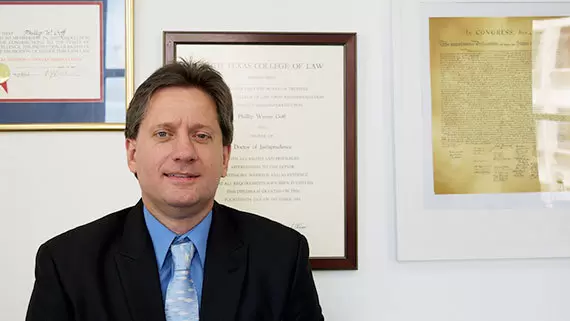
What’s worse in the criminal justice system: 1) institutionalized corruption of scientific integrity; or 2) an attempt to manipulate the situation to make it appear one believes scientific integrity is important?
Crime lab scandals throughout the United States have become common, with even the vaunted FBI being exposed for its systematically deficient practices. Apparently, the FBI deserved none of its popular reputation, setting standards for sloppiness and disregard for the truth.
Forensic evidence, i.e. “scientific proof”, is extraordinarily powerful evidence, and juries routinely find it convincing. It is much more convincing than other types of evidence. (Eyewitness testimony is frighteningly prone to mistakes and is inherently unreliable, but our criminal justice system uses it widely, and juries believe it.)
It’s no wonder the government wants to use science to prove its cases. Who wouldn’t want the most powerful evidence at one’s disposal in trial? Crime labs don’t deserve the credibility science commands. Why? Crime labs routinely don’t follow procedures requ??? ired of scientists. Instead, they make up their own rules and falsely self-validate their deficient procedures, routinely cutting corners along the way.
Houston has had ongoing scandals of various types for at least ten years. The The situation has been so atrocious and recurring, the Houston Chronicle even editorialized it as “never ending” in 2011.
The Texas Department of Public Safety demonstrated its “commitment” to scientific integrity in its labs by hiring a disgraced Houston DNA supervisor to be a supervisor in a state lab, effectively rewarding her duplicity with a promotion.
Stories of police systematically hiding or destroying evidence appear with regularity, along with other obvious disrespect for members of the public at large. Worse, there is practically no accountability for police misconduct.
Now, stories of prosecutorial misconduct are becoming commonplace. Corpus Christi is right in the middle of several allegations. A former Nueces County District Attorney is the star witness for the defense team of Hannah Overton, accusing the lead prosecutor of intentionally hiding evidence favorable to Overton. One former Assistant District Attorney has even filed a lawsuit, alleging he was fired for refusing to hide evidence which favored defendants.
It’s hard for me to blame a competitor from wanting to compete and win. However, criminal justice is not a game, and rigging the process is unacceptable because it means freedom is sacrificed. Lawyers are competitive, and they have great influence with police and their forensic labs. After all, they are on the same team, and they believe they are getting the “bad guys” who shouldn’t go free merely because some evidence points to their innocence.
Solutions are difficult to agree upon, much less implement, and it gets worse when prosecutors try to gain unfair advantage and to obfuscate truth. The fact is prosecutors already have significant advantages in the process, especially in the federal system, but it isn’t enough to most prosecutors’ liking.
Just this past week, the top of the food chain in prosecution, The United States Justice Department showed its true colors when it tried to prevent a common sense improvement to the integrity of trials: prosecutors should start sharing lab results with defense attorneys prior to trial.
Judge Jed Rakoff, an appointee to a prestigious committee charged with improving forensic science in the United States resigned dramatically in late January. He explained his departure, and it was damning. The U.S. Department of “Justice” banned the recommendation of sharing more scientific information with defense attorneys. He said,“…I believe it reflects a determination by the Department of Justice to place strategic advantage over a search for the truth…” and “[the ban] … voids months of work [by the commission]”
The very next day, the Department of “Justice” reversed its position, but only after it was publicly exposed for its hypocrisy and true intentions. Judge Rakoff rejoined the commission. My belief is the only reason the position was reversed was to save the commission from being deemed an abject failure.
As for me, the damage was done. When the formation of the commission was announced, I believed it was a political way to give the appearance of integrity to a process which has none, and where none is expected from the government.
I believed it was a way for the government to deflect attention from the fact the entire process is corrupt, and they don’t want to change because the corruption is grossly favorable to the government.
Here’s the simple truth: the government doesn’t want scientific principles to be honored because the government would lose more cases. Judge Rakoff exposed the truth, regardless of his rejoining the commission. The mere fact the Department of “Justice” had the gall to ban recommendations of fairness demonstrates how out of touch it is with scientific integrity and basic tenets of fairness, decency, and respect for individual rights against government overreach.
The only rational solution is independent labs. In our system, police agencies control every piece of evidence, and virtually all scientific testing and production of test results. Effectively, “crime labs” are staffed by law enforcement officers. Is it any wonder they want to support their fellow cops? Cheating, lying, and pretending evidence exists when it doesn’t become perfectly acceptable to those so-called “scientists”, even to the point of swearing to them in court. It’s a competitive process, and the so-called “scientists” want evidence of guilt.
Until crime labs are free of police and prosecutor control, we can expect more of the same, and integrity will never be a true goal in crime lab policies.